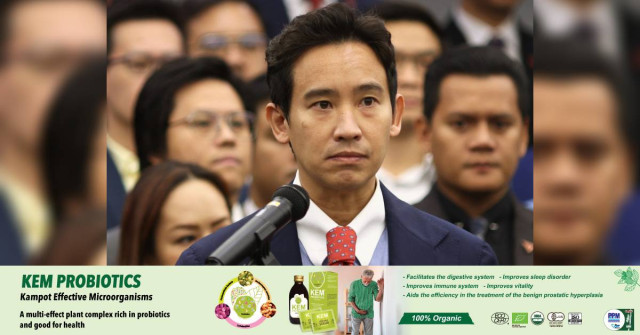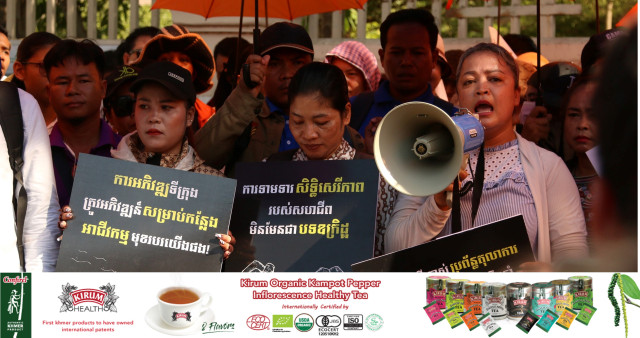Reformist Thai Party Faces Dissolution Bid

- By Agence France-Presse (AFP)
- February 1, 2024 8:10 PM
Bangkok, Thailand -- The progressive party that won the most seats in Thailand's last election faced a possible dissolution bid on Thursday, after losing a court case over its bid to reform the kingdom's tough royal insult laws.
Nine Constitutional Court judges ruled Wednesday that the Move Forward Party's (MFP) campaign pledge to loosen lese-majeste legislation amounted to an attempt to overthrow the monarchy.
An activist on Thursday lodged a formal request with the Election Commission of Thailand, the country's top polling body, asking for MFP to be dissolved.
"My petition asks the election commission... to rule on whether the Move Forward Party should be disbanded, and its executives lose their political rights," petitioner Ruangkrai Leekitwattana told reporters.
Ruangkrai asked the court to dissolve MFP twice last year, but both times the petition was rejected.
MFP upended Thailand's political order in May's election, finishing first after a campaign promising to reform the kingdom's strict lese-majeste laws.
On Wednesday, the court unanimously ordered the party to stop all efforts to reform the laws against insulting or defaming King Maha Vajiralongkorn.
Thailand has a history of political parties being wound up by judicial intervention, including MFP's forerunner the Future Forward Party, which was dissolved in 2020 over finance issues.
The lese-majeste law is intended to protect the king -- a revered, semi-divine figure in Thai society -- from insult, and those breaking it can face up to 15 years in jail per offence.
Critics say the legislation has been interpreted broadly in recent years, effectively shielding the royal family from any kind of criticism or mockery.
Reform of the lese-majeste law, known in Thailand as 112 after the relevant section of the criminal code, was a major theme of 2020 pro-democracy demonstrations, which featured unprecedented public criticism of the royal family.
More than 250 people have faced royal insult charges in the wake of the protests, according to Thai Lawyers for Human Rights, a legal group that handles many cases.
Despite winning most seats, MFP was excluded from the coalition that formed the government, and then-leader Pita Limjaroenrat was blocked from becoming prime minister.
© Agence France-Presse















